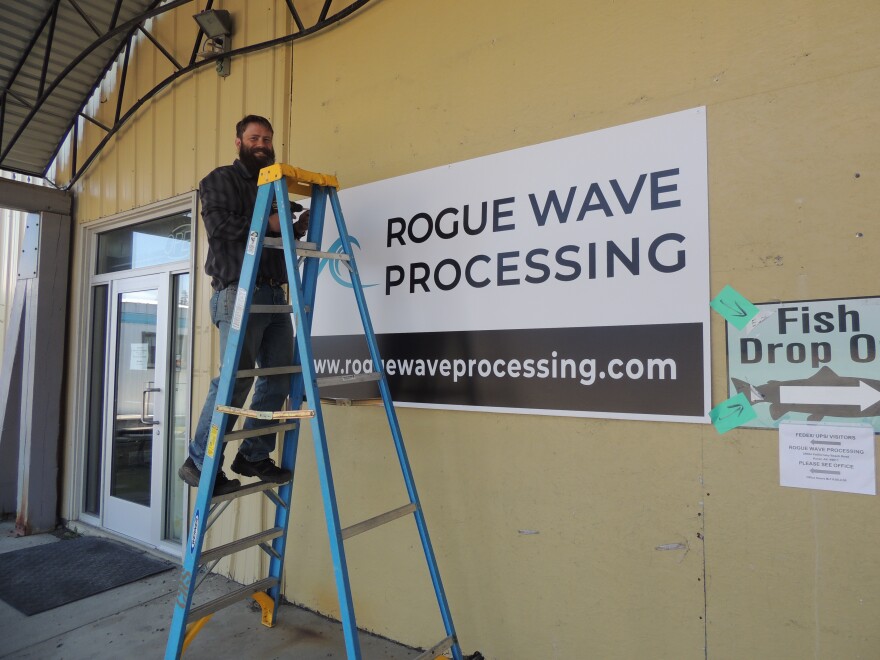It’s quiet on-site now. But the Rogue Wave fish processing plant, on Kalifornsky Beach Road, will soon buzz with dozens of workers processing thousands of pounds of salmon.
“This is our main processing floor," said Matt Haakenson, gesturing to large machines in the front room of the K-Beach plant. "These are our head and gut lines.”
Haakenson is assistant general manager of the new plant. And he’s been working long days ahead of the drift fleet’s June opening, when Rogue Wave will start buying salmon from Cook Inlet fishermen and selling it wholesale.
The new company is in the building Snug Harbor Seafoods was in for two decades, before it sold to Copper River Seafoods in 2019. Copper River announced earlier this spring it would no longer purchase salmon in Cook Inlet.
The changing ownership of the K-Beach plant mirrors the changing landscape of commercial fishing in the inlet. In its exit announcement, Copper River cited declining salmon runs, fishery management changes and increasing production costs as reasons for the shift.
Meanwhile, there are few processors left in the inlet. Pacific Star is the only other Kenai-based processing plant for the drift fleet. OBI Seafoods in Homer also buys from fishermen in Kasilof and Ninilchik.
Haakenson grew up in Anchor Point and has worked as a commercial fisherman and processor, including with Inlet Fish and Pacific Star Seafoods
And he said it's crucial to provide a place for local commercial fishermen to sell their fish.
“The commercial fishing industry locally is really important to us — as a business and also to me, personally," he said. "I grew up doing this and it’s not just about the money. It’s about the lifestyle and the people who are doing that.”
He said that heritage — and passing it down — is fundamental to the value of the fisery for its permit holders, including for Cook Inlet east side set-netters. Haakenson's setting up purchasing stations on set-net beaches to buy from them directly
“About 80 percent of the fishermen in Cook Inlet live here, locally," he said. "By far, they are Alaskans. They’re people who live here, they’re our friends and neighbors. And that’s important that we have this. It’s also food security.”
In addition to the plant, Rogue Wave has docks on Bridge Access Road and North Cohoe, in Kasilof, as well as in Ninilchik and Homer. And Haakenson said he’s confirmed they’ll be buying from about 50 boats so far — a relatively small fleet.
There's also a retail store in the front of the plant.
“It's been a long-term goal of mine to make fish available to the community," Haakenson said. "And I plan on selling wholesale prices at the storefront."
He said that will be a small part of his sales. But it’s important that people on the Kenai can buy local fish at a good price.
The rest, he said, will be sent to Anchorage or Seattle. Roe — like most of the roe that comes from Alaska — will likely head overseas.




